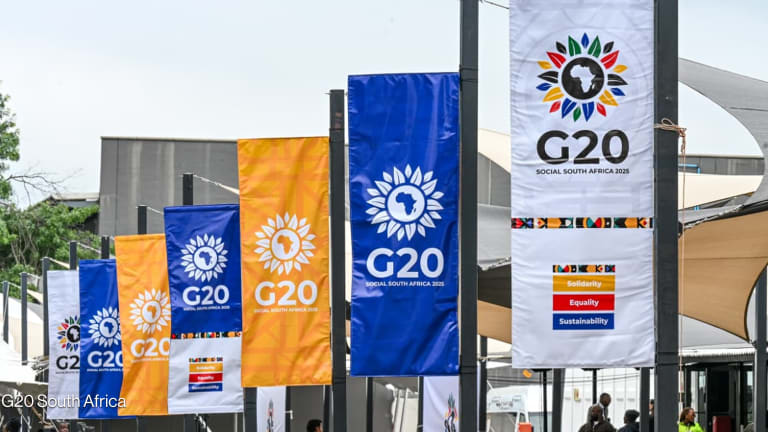
Recovery from the global economic crisis should be led by inclusive and green growth, according to U.N. Secretary-General Ban Ki-moon. Ban has called on leaders of the world’s leading economies to put jobs creation, women’s empowerment, health and climate change on their recovery agenda.
“I urge all governments to take into account – besides the usual macroeconomic indicators – human development objectives and impacts, especially through job recovery,” Ban wrote in a letter to leaders of G-20 member countries. “As the recovery takes hold, these measures should progressively be replaced with more targeted ones aimed at sustainable human development.”
G-20 leaders will meet in Toronto June 26-27, immediately after the summit of G-8 leaders on June 25 in Toronto. The Toronto summit will focus on creating strategies for recovery from the global economic crisis of the past year.
In his letter, Ban explained that high unemployment, persistent inequalities and rising food and commodity prices have significantly contributed to a rise in poverty, hunger and associated social tensions. He noted that increased investment in human development is necessary to address these issues.
Welcoming the G-20’s intention to include development in the agenda for the group’s next summit in Seoul in November, the secretary-general encouraged the leaders to strive for recovery based on the following factors:
- Inclusive growth that provides well-aligned and adequate support for national investment plans, measures to expand access to credit and savings for the poor and women’s economic empowerment.
- Conclusion of an international trade deal that considers the needs of the world’s poorest nations.
- Healthy populations, a goal that can be achieved through increased investments in global health and national health systems.
- Green growth, which can be attained by meeting climate change adaptation and mitigation commitments.
Ban also emphasized the importance of accountability in delivering quality jobs, helping people most affected by the crisis and delivering on aid commitments.
“In an era of austerity, we must be wise with limited resources. Accountability is not charity. It is central to a coordinated global recovery plan,” Ban wrote in an opinion piece published in several major newspapers. “Focusing on the needs of the most vulnerable can spur economic growth today and lay the foundation for a more sustainable and prosperous tomorrow.”








